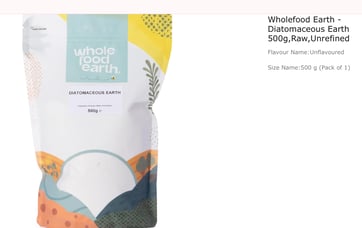
Organic Pest Control
Natural Pest Control Solutions for Your Medicinal Garden
ORGANIC GARDENINGBEGINNER GUIDESACCESSIBILITY
Rhonda Reynolds
3 min read
Natural Pest Control Solutions for Your Medicinal Garden
Maintaining a healthy garden without harmful chemicals is essential for organic medicinal plant cultivation. Natural pest control methods protect both your plants and the beneficial organisms in your garden ecosystem; not to mention any food or medicinal plants you ingest won’t have been coated with, nor grown in chemicals. I think we can all agree on the benefits of that! Here's a comprehensive guide to organic pest management strategies that work for gardeners of all mobility levels.




Understanding Organic Pest Control
Organic pest control works with nature rather than against it, focusing on prevention, building healthy soil, and using natural deterrents. The goal is to manage pest populations rather than eliminating them entirely, maintaining a balanced ecosystem where beneficial insects can thrive.
DIY Organic Pest Sprays
All-Purpose Garlic-Pepper Spray
6 cloves of garlic, minced
1 tablespoon of hot pepper flakes
1 quart of water
1 tablespoon of biodegradable liquid soap
Instructions: Combine garlic and pepper flakes in water and let steep overnight. Strain the mixture into a spray bottle and add liquid soap. Spray on affected plants, focusing on the undersides of leaves where pests often hide.


Neem Oil Spray
2 teaspoons of neem oil
1 teaspoon of mild liquid soap
1 quart of warm water
Instructions: Mix all ingredients in a spray bottle and shake well. Apply weekly to affected plants as a preventative measure or to treat active infestations.
Diatomaceous Earth
This powder-like substance damages the exoskeletons of crawling insects but is harmless to humans and pets.
Instructions: Using a shaker container or duster, apply a thin layer around plant bases. Reapply after rain. For gardeners with mobility challenges, consider using a long-handled duster tool.
Slug and Snail Management
Beer Traps
Shallow containers (tuna cans work well)
Beer or a mixture of water, yeast, and sugar
Instructions: Sink containers into the soil with the rim at ground level. Fill halfway with beer or the yeast mixture. Empty and refill every few days.
Copper Barriers
Copper tape or wire creates a barrier that slugs and snails won't cross.
Instructions: Place copper tape around raised beds, container rims, or individual plants. For accessibility, raised beds can make this process easier for those with limited mobility.
Eggshell Barriers
Crushed eggshells create a sharp surface that deters slugs and snails.
Instructions: Rinse, dry, and crush eggshells into small pieces. Spread around vulnerable plants, creating a protective circle.
Beneficial Nematodes
Beneficial nematodes are microscopic organisms that target soil-dwelling pests while leaving plants unharmed.
Application:
Purchase from a reputable garden supplier
Mix with water according to package instructions
Apply to soil using a watering can in the evening or on cloudy days
Keep soil moist for several days after application
For gardeners with mobility limitations, consider using a hose-end sprayer attachment for easier application.
Companion Planting Strategies
Strategic plant combinations can naturally repel pests:
Plant aromatic herbs like basil, mint, and rosemary throughout your garden
Marigolds deter nematodes and attract beneficial insects
Nasturtiums act as trap crops for aphids
Chives and garlic repel aphids and Japanese beetles
For accessible gardening, consider container arrangements that incorporate companion planting principles.
Accessible Gardening Tips for Pest Management
Raised Beds and Containers
Position at comfortable heights to reduce bending
Use drip irrigation systems for easier watering
Install narrow beds that can be accessed from both sides
Adaptive Tools
Long-handled tools for reaching without bending
Ergonomic grips for easier handling
Lightweight spray bottles with trigger locks to reduce hand fatigue
Other Prevention Strategies
Use row covers for physical barriers against flying pests
Install bird houses and bat boxes to attract natural predators
Practice crop rotation to disrupt pest life cycles
Creating a Balanced Ecosystem
The ultimate goal of organic pest control is creating a balanced garden ecosystem where beneficial insects and natural predators help keep pest populations in check:
Plant diverse flowering plants to attract beneficial insects
Provide water sources for birds and beneficial insects
Create insect hotels for pollinators and predatory insects
Avoid broad-spectrum treatments that kill beneficial insects
By implementing these organic pest control strategies, you'll create a thriving medicinal garden that's both productive and accessible, regardless of mobility challenges. Remember that organic gardening is about working with nature's systems rather than fighting against them, resulting in a healthier garden and environment for everyone.








